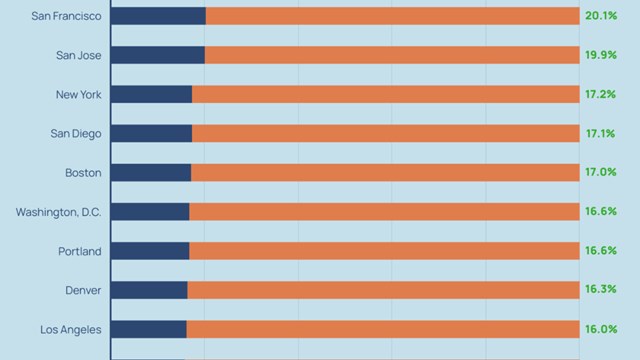A New Jersey appellate court recently upheld a trial court's refusal to force condo unit owners to pay an assessment levied to cover the replacement of sliding glass doors in each of an HOA's units. In the case of Regent Beach Condominium Association v. Capolino, the appellate court ruled the condominium did not have the power to assess owners for the replacement cost of items included within the definition of "unit."
The original case involved a dispute over the replacement of doors at Regent Beach, a 52-unit condominium in Cape May. Each of the condo units came equipped with sliding glass patio doors, and in 2002, several association members approached the board about replacing their doors, which had become worn and weathered. According to court documents, the issue was complicated by the fact that the doors were not a standard size, and that the condo building's exterior walls had been waterproofed, necessitating custom-made replacements.
Also, the condominium's master deed defined the doors as part of individual units and not common elements, thus the board felt that replacing them could impact the waterproofing and appearance of the exterior walls, which are common elements. In the interest of maintaining the building's aesthetic integrity and waterproofing, the association proposed replacing all the doors in the community at one time—whether the unit owners wanted new doors or not.
According to court documents, while a "substantial majority" of the residents voted in favor of a special assessment to pay for the custom-built doors, a number of residents objected strongly, and refused to pay the assessment. The association filed suit against the holdouts and filed liens on their units for the amount of the assessment. A trial court found in favor of the defendants, granting them summary judgment on the assessment issue, and ordering the HOA to reimburse the unit owners—with interest—for their costs, and for the any liens they had to pay upon selling their units.
When the condo association appealed, the appellate court also rejected the condo's argument that it was necessary to replace the doors and level the assessment because if owners had replaced the doors themselves, the new doors might not match the other units. The appellate court felt that even if the Condominium Act allowed the condominium to do this—which it does not—the association could have avoided having mismatched or improperly installed doors simply by explicitly requiring each owner to replace his door with a door of similar style, quality and aesthetic standards.
Here, the doors were clearly part of the "unit," pursuant to New Jersey's Condominium Act and Regent Beach's master deed. Since the Condominium Act permits assessments to maintain, repair, protect and/or replace common elements, and the assessment in question in this case related to the replacement of items other than common elements, it was invalid and not due from the complaining owners.
Judges Lisa Collester and S.L. Reisner said in their decision for the Superior Court of New Jersey, Appellate Division, "The Master Deed clearly provides that the units' sliding doors are part of the units and not part of the common elements. If, apart from this wholesale replacement project, defendants had asked the association to fix a broken sliding door in their unit, we have no doubt the association would have refused on the grounds that the doors were not a common element.
"Further, we find unpersuasive the plaintiff's concern that unit owners might not repair or replace their sliding glass doors when needed, or might install replacements that did not match those of the other units. In light of these provisions, the association might have encouraged owners to voluntarily replace their sliding doors by identifying a provider willing to fabricate replacements at the lowest possible price. Owners who chose not to take advantage of this opportunity could still be required to replace those doors in a style that conformed to quality and aesthetic standards established by the association."
This case makes it clear yet again that condominiums are authorized to raise and spend owners' funds to maintain, protect, replace and/or repair only common elements—not units—even if, practically speaking, the owners may be better off in that particular situation if portions of units are replaced using those same owners' funds.
David Byrne is an attorney with the Princeton-based law firm of Stark & Stark in Lawrenceville. Associate Editor Hannah Fons contributed to this article.







Comments
Leave a Comment